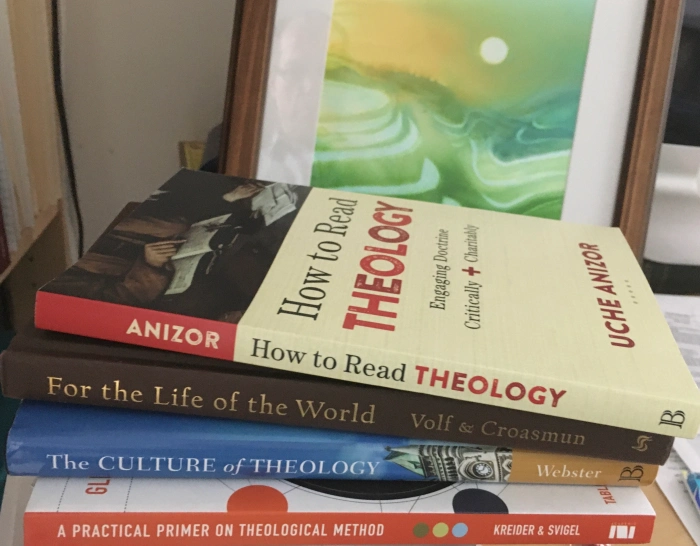
Recently there has been a steady stream of relatively short but rich publications on theological method (“how to do theology”). I take this as a sign of revitalization in the discipline of dogmatics: thinking God’s thoughts after him through faithful reflection up Holy Scripture in the Church and for the world. These works contain much that is wise and practical. The four pictured above provide a good place to start, but there are many others. What especially stands out is the collective cry for prayer, holiness, and humility, as well as other virtues — all in dependence upon the grace of God, the power of the Holy Spirit, and participation in the very life of Christ. Oh, that the Lord would raise up such theologians among us!